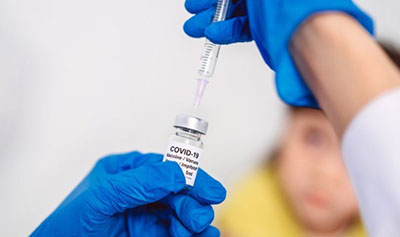by WorldTribune Staff, April 28, 2022
Public health officials are puzzled by a reported outbreak of severe hepatitis in young children in the U.S. and Europe.
A report by Mercola noted that, as of April 8, health officials reported 74 unexplained cases of severe hepatitis in children up to 10-years-old. Some of the children required hospitalization and six have undergone liver transplants, but no deaths were reported as of April 11.
 “Researchers found COVID-19 vaccines trigger innate immune suppression that could cause liver disease, but it’s unclear if the children with hepatitis received the vaccine,” the report noted.
“Researchers found COVID-19 vaccines trigger innate immune suppression that could cause liver disease, but it’s unclear if the children with hepatitis received the vaccine,” the report noted.
The World Health Organization (WHO) said it expects that more cases of the mysterious hepatitis illness will be uncovered in children. So far, laboratory testing has ruled out hepatitis type A, B, C and E viruses, along with hepatitis D where applicable, leaving the cause unknown.
WHO said: “Overall, the etiology of the current hepatitis cases is still considered unknown and remains under active investigation. Laboratory testing for additional infections, chemicals and toxins is underway for the identified cases.”
Symptoms of the liver disease include diarrhea, nausea and vomiting, along with jaundice in some. Liver enzymes were also elevated.
“Five of the children tested positive for adenovirus type 41, which are respiratory viruses that can cause the common cold. Health officials have suggested that adenovirus type 41 could be to blame,” the report noted.
But, Dr. Wes Stubblefield, district medical officer for the Alabama Department of Public Health, said, “This is unusual. This virus hasn’t, in the past, been associated with this constellation of signs, symptoms and injury.”
Nine children in Alabama have developed severe hepatitis, or inflammation of the liver, that health officials can’t explain. All of the children were age 6 and younger and were previously healthy.
Others have also discounted the adenovirus type 41 theory, “as adenoviruses are extremely common in children, meaning that it’s quite possible they could test positive for adenoviruses without them being the cause of hepatitis,” the report said.
Conclusive evidence that COVID-19 shots may trigger hepatitis, the Mercola report said, was provided in a case report involving a 47-year-old previously healthy man.
The man featured in the case report received his first Moderna COVID-19 shot on April 26, 2021. Three days later, he developed malaise and jaundice, a yellowing of the skin that can occur if the liver isn’t processing red blood cells efficiently; it’s a hallmark of hepatitis, and a symptom being experienced by some of the children noted above.
The man had his liver function tested four years earlier, with tests coming back normal, and had no history of acetaminophen usage, which can cause liver damage, and only minimal alcohol usage.
“Immune-mediated hepatitis with the Moderna vaccine is no longer a coincidence but confirmed,” researchers wrote in the Journal of Hepatology in October 2021.
By the end of June, the man’s jaundice and liver function tests improved, but then he received a second dose of the Moderna shot on July 6, 2021. Within days, the jaundice returned and liver function tests declined.
The Journal of Hepatology researchers explained: “The pattern of injury on histology was consistent with acute hepatitis, with features of autoimmune hepatitis or possible drug-induced liver injury (DILI), triggering an autoimmune-like hepatitis. This case illustrates immune-mediated hepatitis secondary to the Moderna vaccine, which on inadvertent re-exposure led to worsening liver injury with deranged synthetic function. This occurred in a well man with no other medical problems. The onset of jaundice associated with the mRNA vaccine was unusually rapid.”
The Journal of Hepatology noted that seven additional cases of suspected immune-mediated hepatitis have been reported following COVID-19 shots, including both Pfizer’s and Moderna’s.
The researchers said they hoped to raise awareness so that vaccination centers will routinely check for signs of immune-mediated hepatitis prior to administering second doses and state, “Long-term follow up of identified individuals will be essential in determining the prognosis of this immune-mediated liver injury.”
Citing documents released by the FDA, the Mercola article noted that “Pfizer knew that in the first week after the shot, people of all ages experienced transient immunosuppression — or put another way, a temporary weakening of the immune system — after the first dose. Could this increased susceptibility to infection also be playing a role in hepatitis and other cases of liver disease following the shots? An investigation is warranted to find out.”
About . . . . Intelligence . . . . Membership
